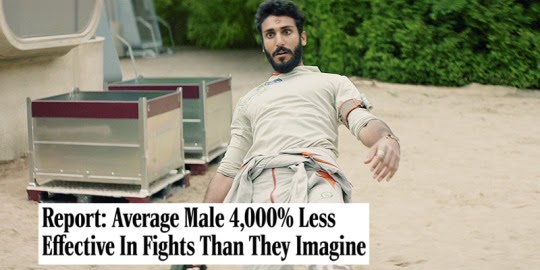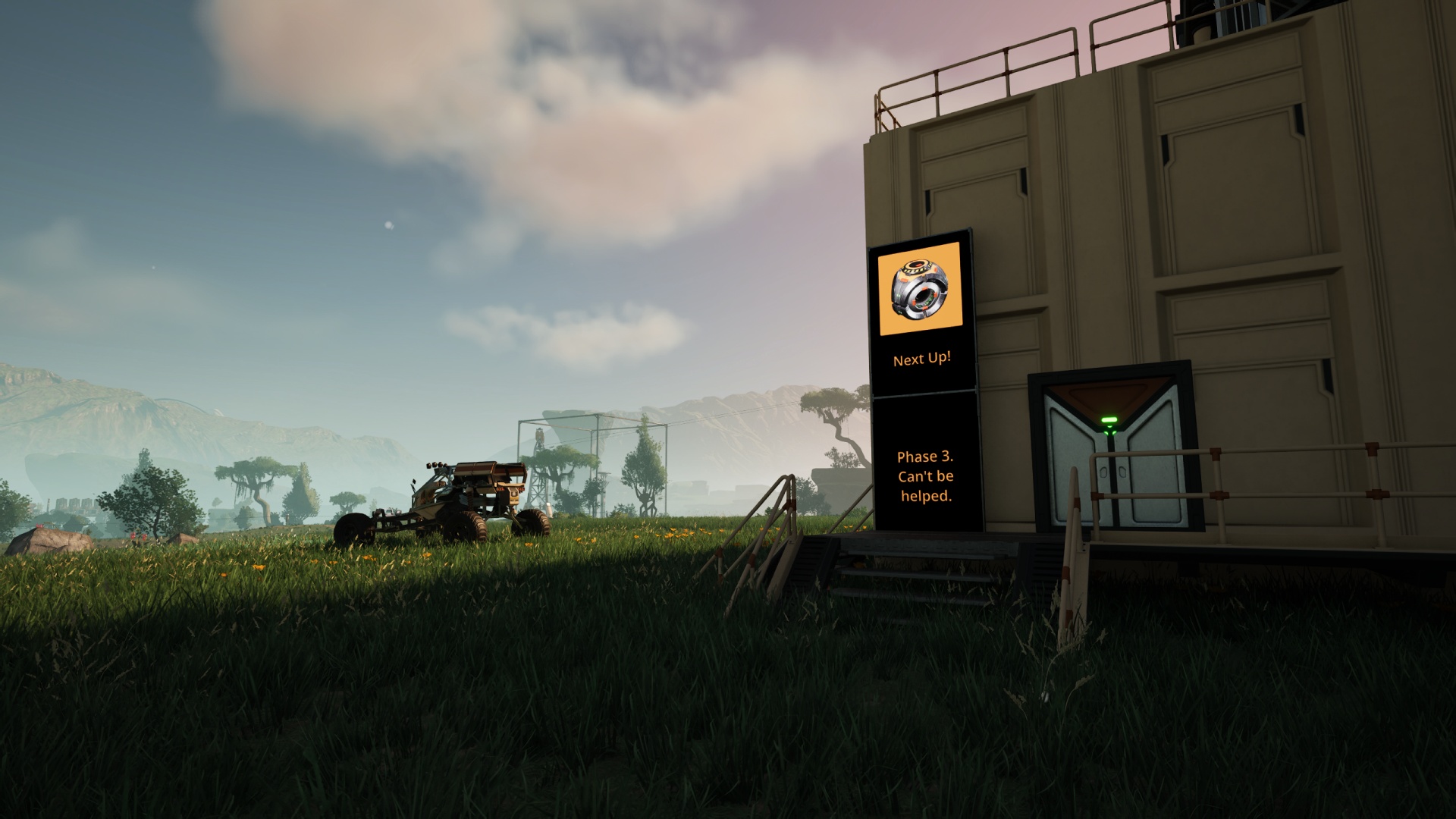Now that I’ve had a few weeks to let my feelings about the televised adaptation settle, I did a re-read of the novella which started it all: Martha Wells’ All Systems Red. Part of my motivation to do so was to put “faces” to characters, and another part was to consider the questions of adaptation. Mostly, though, I read it because it’s a damned good book. There’s a reason this series is so beloved, after all. And a lot of what hooked us with the first installment did, in fact, make it into the TV show.

Just, for the most part, not exactly as in the original text.
To start out, I’ll join the chorus of people who have been saying one particular thing about All Systems Red since it came out: This could be a movie. It could! But now I’ve seen the TV show, I think I’m glad it wasn’t made into a movie. Which isn’t to say the show is perfect (“oh, Ratthi, no“) or wholly respectful of the original versions of the characters (“oh, Gurathin, no“) but… okay, let’s talk about the characters for a minute and how they’d fare in a movie adaptation which hewed more closely to the source material.
The one character we spend all our time with is the SecUnit narrator, who refers to itself as “Murderbot.” Every word of the story is from its perspective. (There’s a reason the series is billed as “The Murderbot Diaries.”) Among the effects of this narrative choice is the simple fact that every other character is only as detailed as Murderbot’s perception of them, and that level of perception varies based on how much of a damn it gives about them… and that variance is non-trivial. Mensah figures most prominently and gets the most detail, and is one of the few characters to get much of a visual description. (At one point near the end Murderbot notes that Pin-Lee looks very sharp & professional, describing her briefly in terms of… what else?… a character archetype from one of the shows it likes to watch.) We’re given somewhat more information about how the PreservationAux team members interact with one another, and outside of Mensah, Ratthi, and Gurathin (in roughly that order of frequency) we don’t get much one-on-one time between Murderbot and what it usually refers to as its “clients.”
Things move along at a brisk pace from start to finish. We get a few paragraphs of setup, then straight into things going sideways, action & conversation & action & consequences until the final, brief, wrap-up chapter. You can knock this book out in a couple of hours without even trying too hard. So, yes: You wouldn’t need to cut out much in order to fit its story into a movie’s runtime. It wouldn’t even need to be a bladder-buster 3-hour epic!
But would it be good? Would it be fun?
The bulk of All Systems Red is a monologue. Sure, along the way it describes several of what could be referred to as action set pieces, but a lot of the charm in those set pieces comes from the snarky internal narration. The first novella doesn’t dwell on very many of the actual combat details, instead prioritizing how Murderbot feels about what’s going on, or other commentary:
“This is how [SecUnits] fight: Throw ourselves at each other and see whose parts give out first.”
If most of what you have to work with is commentary, how do you turn that into movie material without making a visual audiobook where the unfortunate lead actor has to recite the character’s internal thoughts at nearly every moment?
The obvious solution, and the one that best justifies the salaries for the other actors, is to flesh out the cast. Give each character some depth and backstory and whatnot. OK, great, but now you’ve got runtime issues because unless you’re going to do them the disservice of the most barebones sketching out of who they are, you need to find a way to let us spend enough time with them all to make the emotional connections… connect.
No problem! First, we’ll trim the cast a bit. Pare it down to a few core characters… but not too few, otherwise the audience is wondering why they’re even on this planet with such a skeleton crew to start with. (Not that the PresAux survey team in the book is terribly overstaffed either. Best not to think about it. MST3K Mantra time.) Then, you give the characters time to bounce off of one another, both before and after things start to go pear-shaped plot-wise, so you can see them at their most cheery and when they’re under pressure.
And… suddenly you realize why the adaptation we got is a TV series and not a movie. The story’s lean enough that we still only need 10 half-hour-ish episodes, but the requirements of making an ensemble cast visual story out of a monologue-style textual story means that we really do need a few hours of screen time to make this all work.
As for why they chose to make it a comedy? It has to do with tone. In the book, Murderbot’s primary lens for interacting with reality is the never-named corporation it works for and how greedy and cheap that organization is. It counts itself, by the way, as among the cheap crap that the corporation foisted off on the PresAux team. This level of sardonic, grim acceptance of the realities of its life runs through the entire book, page by page. Murderbot often refers to how it half-asses its job, or prioritizes watching its media over things like, oh, reviewing and retaining instructional manuals for available equipment.
You can’t lose that without losing a large part of the tonal quality of the book, and so… a kind of dark comedy is one of the clearer adaptation paths to take.
After all of this rambling, one may ask: So how did the show do?
I hadn’t read the novella since last year so I went into the TV show relatively cold. Note that I’ve revisited the Murderbot books from the start with almost every new installment so I wasn’t unfamiliar with the story… but it wasn’t fresh enough for me to point at the screen and yell “Wrong, wrong, you got that wrong!” or anything like that. I was able to just let everything wash over me. But now? With the book fresh in my mind? I’m actually kind of impressed.
The skeleton of the plot is there, from the monster attacking Dr. Bharadwaj to the launch of the beacon while under threat from the baddies. (Oddly enough, I’d forgotten that last bit was more-or-less sourced from the book. Presented differently, though.) We get a lot of other details as well, among them: Dr. Mensah with the mining drill. (Which I’d also forgotten was book-sourced. Wow, my memory’s bad.) Dr. Ratthi having failed to pass the weapons handling course. Murderbot demonstrating to Dr. Gurathin that not-murdering is a choice.
(As an aside: Last night, pondering what would become this post, I wondered what would’ve happened if, in the TV show, Murderbot had slammed its hand against the wall next to Gurathin’s head instead. You know… an actual “kabedon” moment from right out of an anime series. I imagine a certain segment of fandom would’ve had a field day with that…)
So, indeed, a lot of the book made it in! More than I actually remembered, including a number of well-selected direct quotes. And most of what the TV show added was delightful: PresAux being such an anti-corporate hippie commune outfit. Ratthi being more heart than sense when he’s not in his professional mode. The step-sibling-like rivalry between Murderbot and Gurathin. (The two are foils in the book but at nowhere near the levels shown in the TV show.) Pin-Lee’s general exasperation at everyone being dingbats. Et cetera.
And then there’s the final episode, which dispenses with the comedic tone and digs down deep into exactly how much life in the hyper-corporate spacefaring future can really, truly suck. All of the actors do sterling work, and nobody’s a punchline. Gurathin in particular gets a show-original character arc in the series and it pays off here in abundance. The show’s writing team and cast respected and built upon the characters, plot points, and themes of the book. Not everything worked… but a lot more of it than expected succeeded rather than faceplanted.
Does the Murderbot TV show pass muster as an adaptation? Overall, heck yes. In fact, please let this team keep going. Give us ART.
